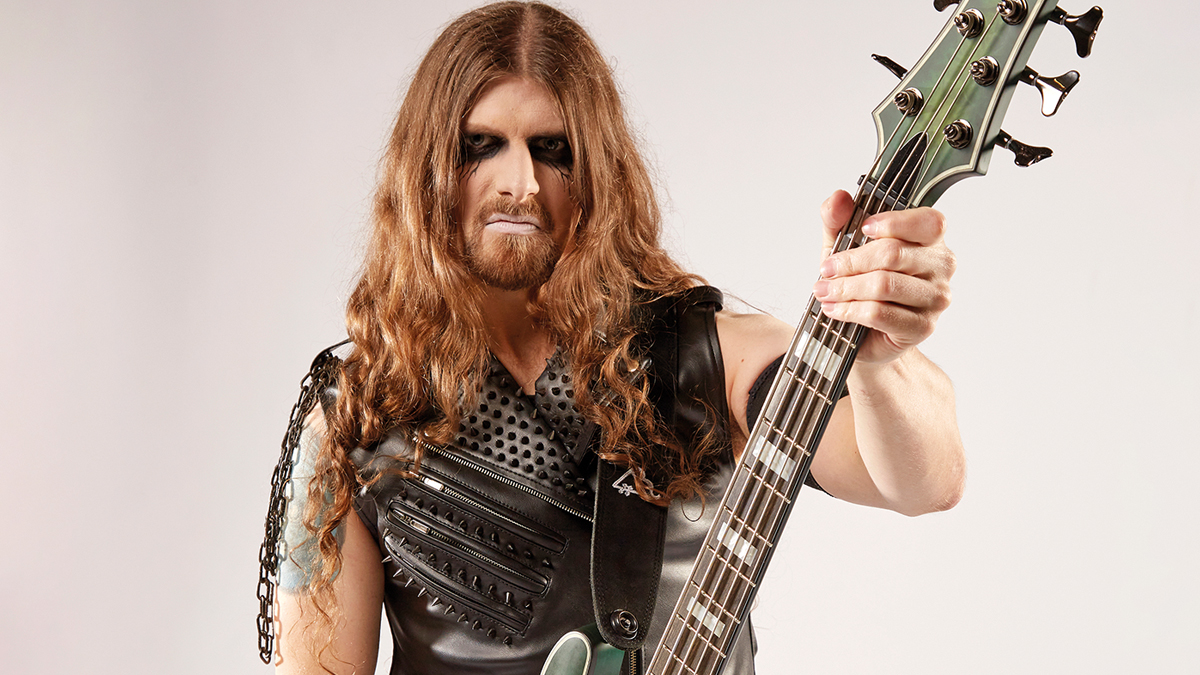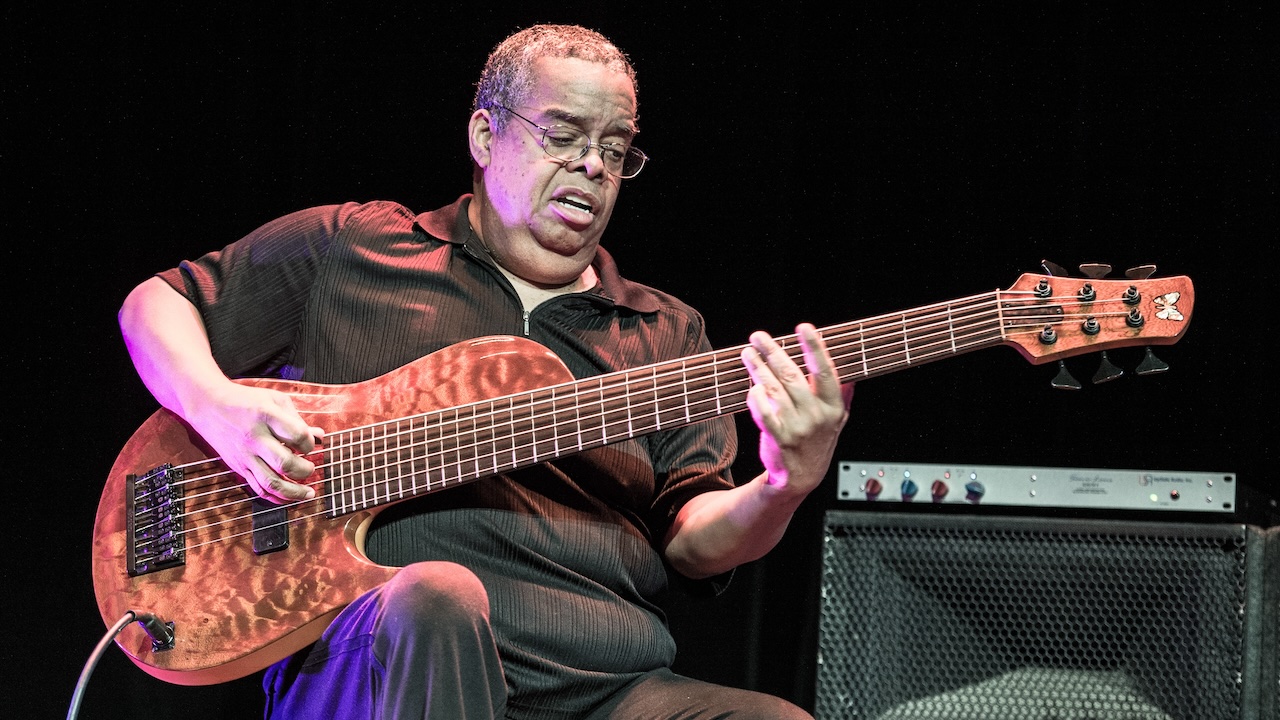Cradle of Filth’s Dan Firth: “With such busy music, you need to really pick your spot... There’s a lot to be said for being really deliberate with your basslines”
The Filth bassist discusses note choice, his growth as a player, and walks us through the most enticing specs of his new signature Schecter five-string

All the latest guitar news, interviews, lessons, reviews, deals and more, direct to your inbox!
You are now subscribed
Your newsletter sign-up was successful
Your new Schecter Hellraiser signature bass guitar is a beauty, Dan.
“Yes, I’m a huge fan of it – both the way it looks and the way it plays. Schecter have been producing the Hellraiser model for a while, and I’ve been using them since I joined Cradle back in 2012.
“It’s a five-string, because I’ve only ever used a five in this band. I guess the aesthetics are where I made the most changes to the stock model. They had a finish called the Dragon Burst, which was yellow to green, with black at the edges, so I thought that replacing the yellow with lime green would look cool. It has block inlays for a bit of class, and I switched out the pickups.”
Which pickups did you go for?
“Fishman Fluence pickups, which I’d been using anyway for a couple years before I got the artist bass. I’ve always loved them – they’ve got a lot of tonal versatility because they have three presets.
“They’ve got the Classic Mode, Modern mode, and Funk mode. I find myself gravitating to Modern mode – I adjust the brightness and the top and it seems to fit my style of playing really well.”
What did you do before you joined Cradle?
All the latest guitar news, interviews, lessons, reviews, deals and more, direct to your inbox!
“I was in a band called Man Must Die, a local Glaswegian band. I got the Cradle gig when they were looking for a bassist. There’s loads of cool bass parts in this band.
“I think with a band that is heavy as this one, it really pays to have lots of dynamics wherever you can, so we quite often have drop-downs and little sections where it’s just drums, bass, and keys, for example. Those moments are a really a good opportunity to do something a bit more melodic with the bass.”
How have you evolved as a bass player in the nine years you’ve been with Cradle?
“I’m better at writing bass parts now. I know how to better serve the song. I had a similar sort of attitude when I started, but I would try and throw in some flashy sorts of licks that I eventually learned didn’t really shine in the mix.
“With such busy music, you need to really pick your spot if you’re going to do anything outside the norm. I think there’s a lot to be said for being really deliberate with your basslines. If you’re just noodling, I think it detracts from the song’s quality – so play with conviction, or don’t play at all.”
A new Cradle album, Existence Is Futile, is on the way. Tell us about the bass parts.
“There’s a lot more deliberation with the bass this time. I was trying to make sure that the bass is playing a supporting role and serving the music, but I also branched out a little bit into more interesting things that will catch your ear. Not at the cost of the songs, though.
“When I record the bass parts, the drums and guitars are already in place, which makes it a really nice palette to work with. I suppose it’s slightly limiting in a way, but I don’t really mind that. My old English teacher used to say to me that sometimes it’s your cage that sets you free, and I think that can be true when writing music.”
- Existence Is Futile is out now via Nuclear Blast.
Bass Player is the world’s most comprehensive, trusted and insightful bass publication for passionate bassists and active musicians of all ages. Whatever your ability, BP has the interviews, reviews and lessons that will make you a better bass player. We go behind the scenes with bass manufacturers, ask a stellar crew of bass players for their advice, and bring you insights into pretty much every style of bass playing that exists, from reggae to jazz to metal and beyond. The gear we review ranges from the affordable to the upmarket and we maximise the opportunity to evolve our playing with the best teachers on the planet.

